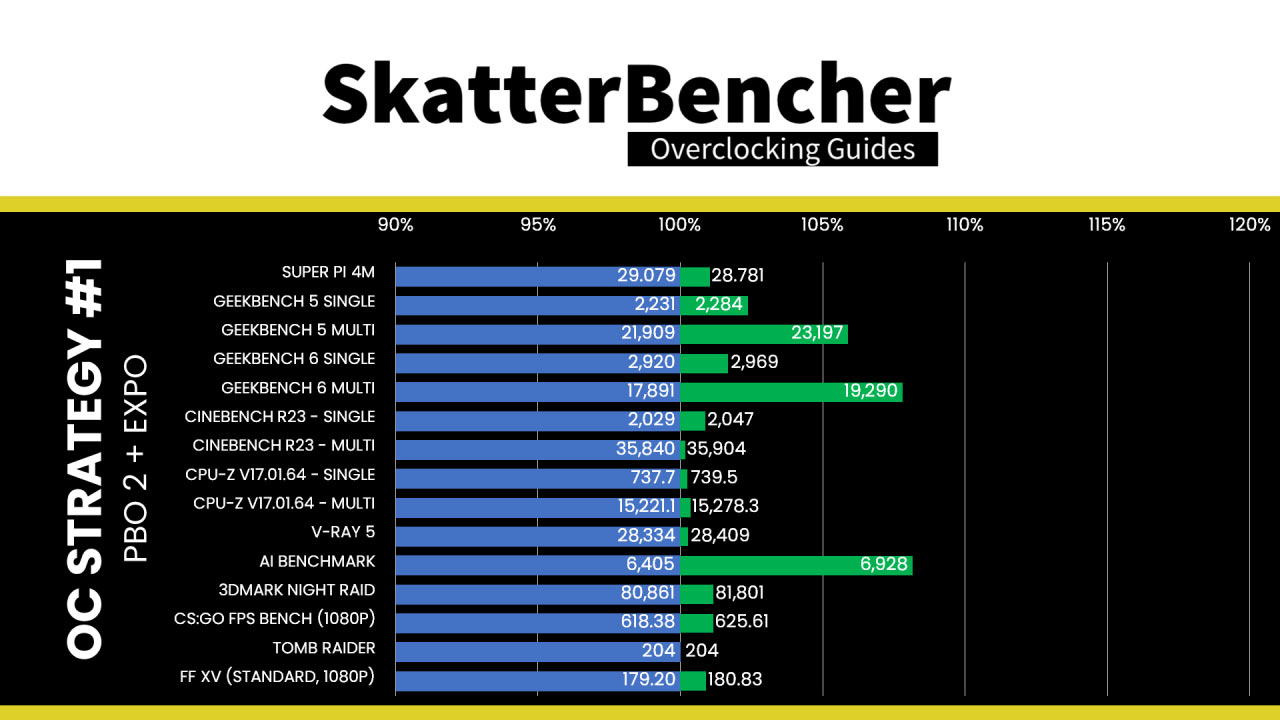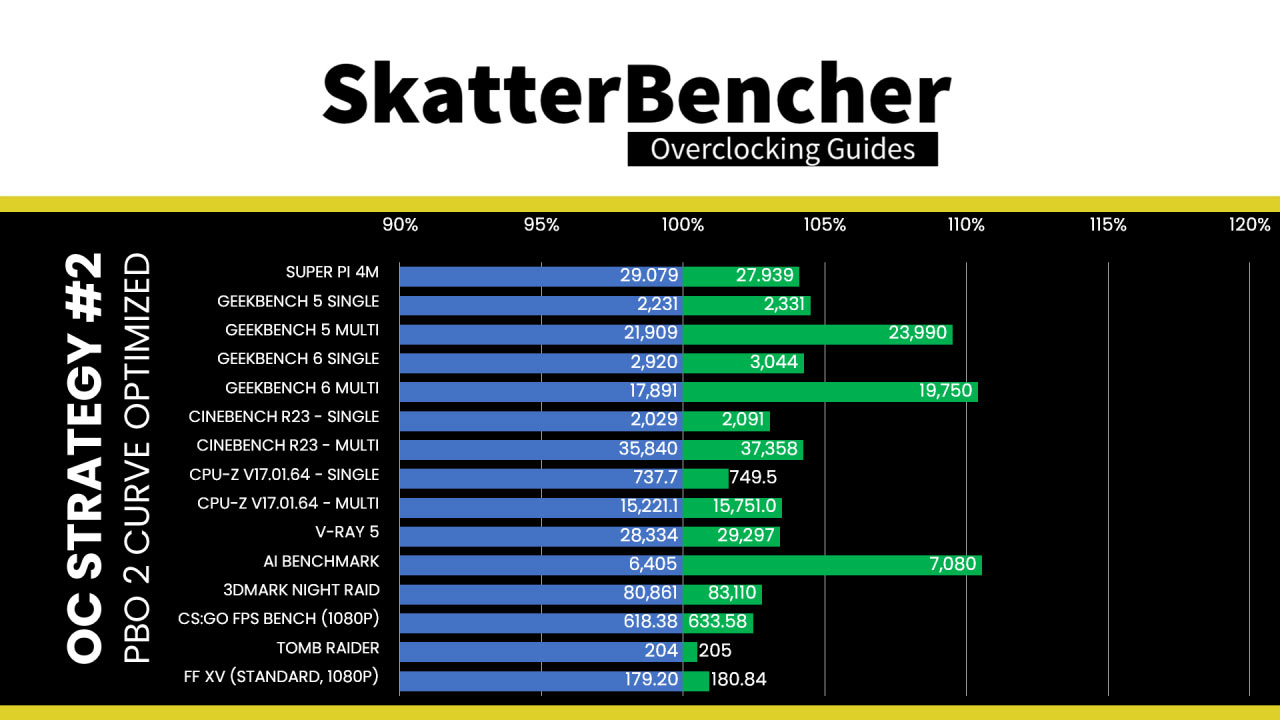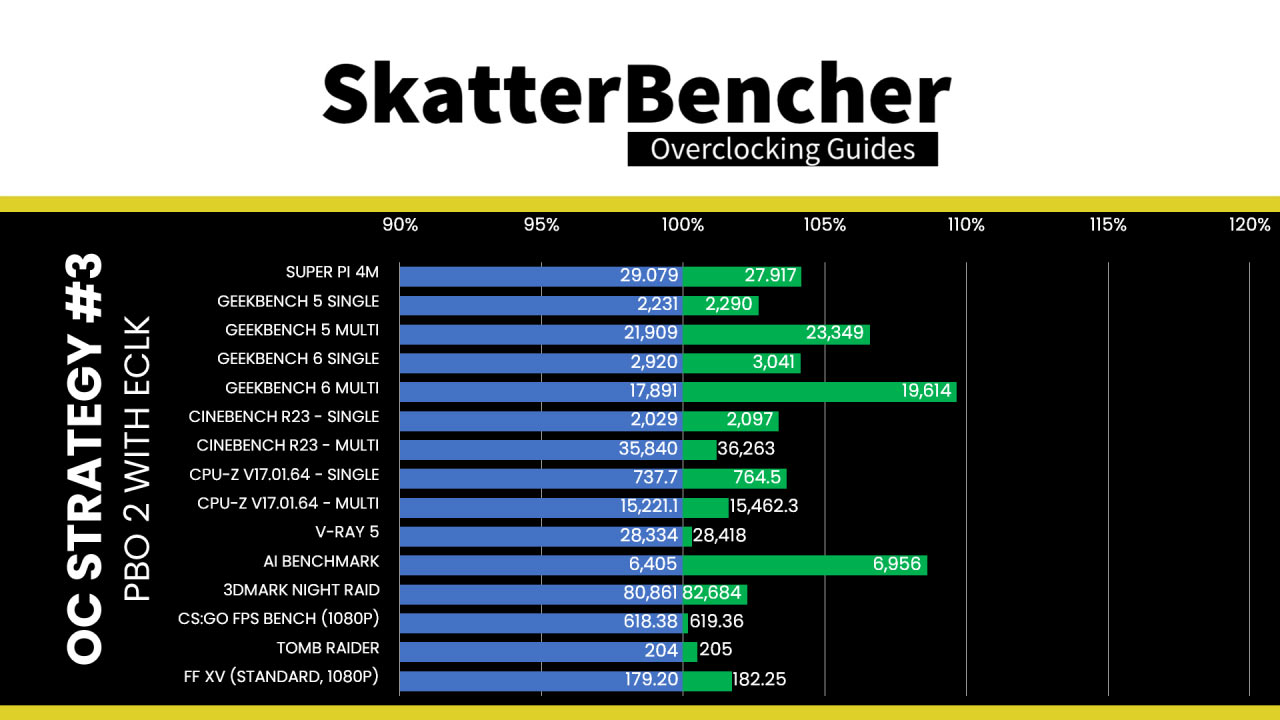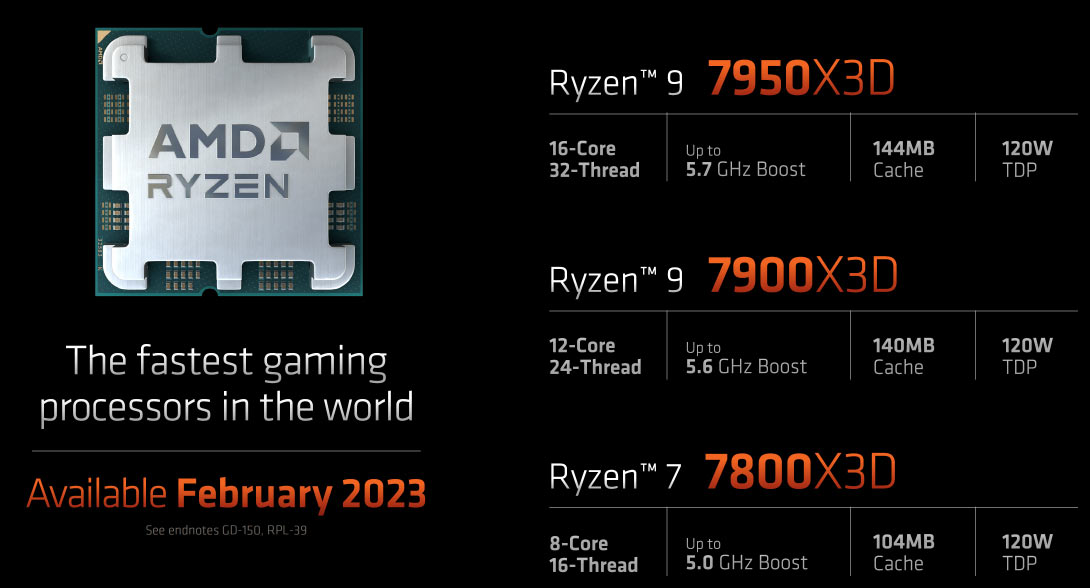AMD Ryzen 9 7950X3D Gets Overclocked to 5.9 GHz
The YouTuber and overclocker outlines three OC strategies for the newest X3D chips.
YouTube’s ScatterBencher has managed to overclock the new AMD Ryzen 9 7950X3D to 5.9 GHz. Successfully overclocking these chips is no simple feat, and the skilled YouTuber (also known as Massman on HWBot) has published a detailed blog talking through three strategies to get the most out of your new Zen 4 with 3D V-Cache desktop processor.
AMD’s 3D V-Cache enhanced 7000 Series CPUs aren’t as locked down as the previous generation X3D processors, and therefore provide several angles for overclockers to exploit. ScatterBencher decided to overclock his 7950X3D with the help of the Asus ROG Crosshair X670E Extreme motherboard and its highly configurable BIOS. Other key components worth mentioning were the ElmorLabs Easy Fan Controller ElmorLabs EVC2SX, an EK-Quantum Velocity2 EK-Quantum Power Kit Velocity2 360 CPU cooler, and the memory used was a G.Skill Trident Z5 DDR5-6400 kit. These same components were used for stock reference stats and all three overclocking strategies outlined below. However, please note that the G.Skill memory was run at DDR5-6000 for extra stability.
ScatterBencher first looked at stock performance across a host of industry standard benchmarks with his capable setup – this obviously gives us a baseline to judge the OC attempts. In the graphics we have reproduced below, the stock performance in the various tests are represented by the blue bars, and overclocking gains are green extensions.



The three overclocking strategies tested were; the use of AMD’s PBO 2 and EXPO, the use of PBO tuned using Curve Optimizer, and the use of PBO with an ECLK boost. The second and third methods of overclocking were significantly more successful at squeezing out extra CPU performance, as you can see from the charts above. The methodology which scored the headlining 5.9 GHz CPU clocks was the second one, using the Curve Optimizer AMD introduced with its Ryzen Master software last year, for use with the Zen 3 architecture processors.
ScatterBencher talked us through the process of using the PBO 2 Curve Optimizer. In brief, he will broadly tune the whole CPU using a negative curve offset, gradually dropping the curve until the point of instability. He will simultaneously gradually increase Fmax Boost Override. Later, tuning is narrowed down to a per-core basis. As you can imagine, making small per-core adjustments then running through benchmarks with a CPU with 16 physical cores can be quite time consuming.
During his overclocking tests with the top-end Ryzen 9 7950X3D, ScatterBencher made some interesting observations. For example, he provided some analysis of the System Management Unit (SMU) which enables PBO 2 on these chips. He also remarked upon the “severely more constrained,” CCD with V-Cache, and its impacts on overclocking strategy / methods. Head on over to the ScatterBencher blog for more details, or sit back and watch the half-hour video embedded below, if you prefer.
Get Tom's Hardware's best news and in-depth reviews, straight to your inbox.

Mark Tyson is a news editor at Tom's Hardware. He enjoys covering the full breadth of PC tech; from business and semiconductor design to products approaching the edge of reason.
-
E-DarkHorse Several months back, I built my 7950x3d system with the ROG Strix 670E-Extreme. I finally have some time to work with overclocking. Before I begin, I'd like to know whether I should use this video as a guide, or if I should look elsewhere, for something more specific to my board.Reply
My system:
7950x3d
ROG Strix 670E-Extreme
G.Skill Trident Z5 RGB DDR5-6400, 2 x 16GB x2 kits, CL32-39-39-102
Radeon RX 7900xtx
4x 1tb Samsung 980 pro ssds (different OSs)
Can anyone report whether they have had success achieving the results as described in this video "AMD Ryzen 9 7950X3D Gets Overclocked to 5.9 GHz," while using the ROG "Strix 670E-Extreme" board in place of the "Crosshair 670E-E?"
Or, is the Crosshair 670E-Extreme required for these results?
Thank you in advance.

